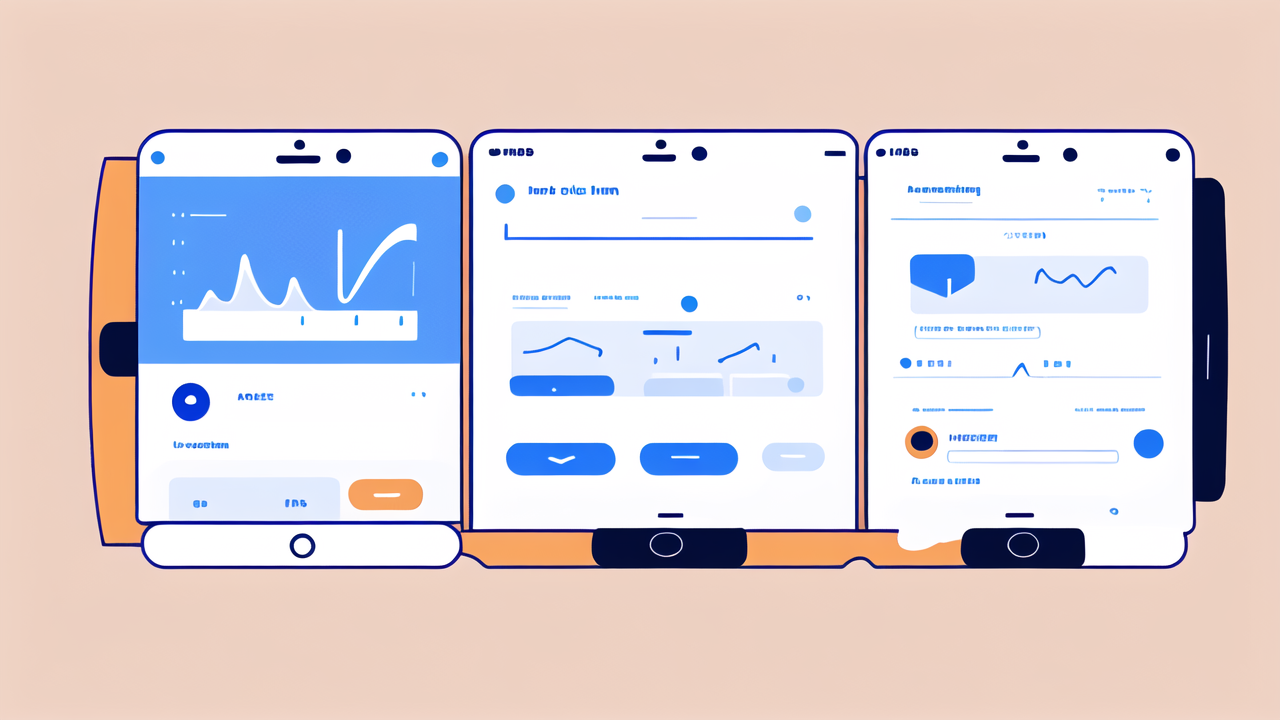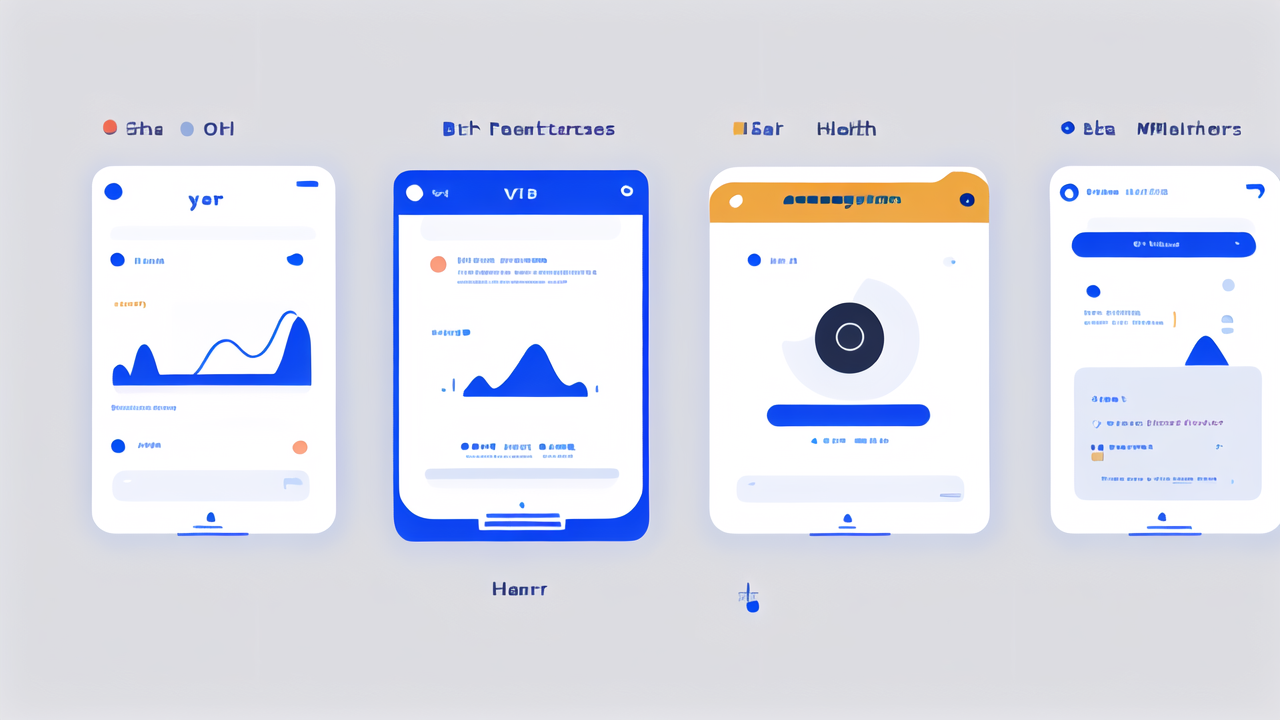Understanding Smart Health Monitors: The Basics
What Are Smart Health Monitors?
Smart health monitors are devices that track various aspects of our health. They collect data on things like heart rate, sleep patterns, and activity levels. These gadgets have evolved from simple step counters to complex health tools. They now offer insights into our overall wellbeing.

Many people wear these devices on their wrists, like watches. Others may clip them onto clothing or use them as standalone devices. The key feature is their ability to gather and analyze health data continuously. This gives users a more complete picture of their health over time.
Smart health monitors often connect to smartphones or computers. This allows users to view their data in detail. Many also offer personalized health tips based on the collected information.
The Evolution of Health Monitoring Technology in the United States
Health monitoring tech in the US has come a long way. It started with basic tools like thermometers and blood pressure cuffs. These were mainly used in doctors' offices or hospitals. Over time, people began using simple devices at home to track their health.
The real game-changer came with the rise of smartphones and wearable tech. This made it possible to collect health data 24/7. Early fitness trackers focused on steps and calories burned. Now, we have devices that can monitor heart rhythms, blood oxygen levels, and even detect falls.
The COVID-19 pandemic has sped up this evolution. It highlighted the need for remote health monitoring. As a result, we've seen rapid advancements in at-home health tech. These tools are becoming more accurate and user-friendly with each passing year.
Key Advanced Features of Leading Smart Health Monitors
Integration with Existing Health Systems
Modern smart health monitors don't work in isolation. They're designed to fit into broader health ecosystems. Many can now sync data directly with electronic health records (EHRs). This means your doctor can access your daily health stats during check-ups.

Some monitors can even alert healthcare providers if they detect concerning patterns. For example, if a heart monitor notices an irregular rhythm, it could notify your doctor. This integration helps bridge the gap between at-home monitoring and professional care.
Another key feature is compatibility with health apps and platforms. Users can often combine data from multiple devices in one place. This gives a more complete picture of overall health and wellness.
AI and Machine Learning Capabilities
Artificial Intelligence (AI) and Machine Learning (ML) are changing the game for smart health monitors. These technologies help devices become smarter over time. They can learn from user data to provide more personalized insights and alerts.
For instance, an AI-powered sleep tracker might notice patterns in your sleep cycles. It could then offer tailored advice to improve your rest. Some devices use ML to distinguish between different types of physical activity. This leads to more accurate fitness tracking and calorie burn estimates.
AI can also help detect potential health issues early. By analyzing trends in your data, these smart devices might spot warning signs before you do. This could prompt early intervention and potentially save lives.
The Importance of Connectivity and Data Accuracy
Connectivity is crucial for modern smart health monitors. Most devices now use Bluetooth to sync with smartphones. Some also offer Wi-Fi or cellular connections for real-time data transmission. This constant connection ensures that your health data is always up to date.
Data accuracy is equally important. Users need to trust that their devices are giving reliable information. Leading smart health monitors use advanced sensors and algorithms to ensure precision. Many undergo rigorous testing and even FDA approval for certain features.
Some devices now offer continuous monitoring of vital signs. This provides a more complete health picture than occasional checks. For example, continuous glucose monitors help diabetics track blood sugar levels throughout the day.
The Future of Health Monitoring: Trends and Predictions
Trends Shaping the Future of Smart Health Monitors
The future of smart health monitors looks exciting. We're seeing a trend towards more non-invasive monitoring methods. For example, some devices can now measure blood glucose without needle pricks. This makes daily health tracking more comfortable and convenient.

Another trend is the integration of environmental sensors. Future devices might track not just your health, but also your surroundings. They could warn you about high pollen counts if you have allergies, or poor air quality if you have asthma.
We're also seeing a move towards smaller, more discreet devices. Some companies are developing smart jewelry or even smart tattoos for health monitoring. These could blend seamlessly into daily life while providing valuable health data.
How Health Monitors Are Paving the Way for Telemedicine
Smart health monitors are playing a big role in the growth of telemedicine. They allow doctors to get real-time health data from patients at home. This can reduce the need for in-person visits and improve care for those in remote areas.
For example, a patient with heart issues might use a smart ECG monitor at home. Their doctor can review the data remotely and adjust treatment as needed. This ongoing monitoring can catch problems early and prevent hospital admissions.
These devices also empower patients to take charge of their own health. With easy access to their health data, people can make informed decisions about their lifestyle and care.
The Role of Smart Health Monitors in Personalized Medicine
Smart health monitors are key players in the move towards personalized medicine. By collecting vast amounts of individual health data, they help create a unique health profile for each user. This can lead to more tailored treatment plans and prevention strategies.
For instance, a smart health monitor might reveal that you respond better to exercise in the morning. Or it could show how certain foods affect your blood sugar levels. This personalized insight can help you and your doctor make better health decisions.
In the future, we might see health monitors that can analyze your DNA or microbiome. This could provide even more personalized health recommendations. The goal is to move from a one-size-fits-all approach to truly individualized healthcare.




Leave a comment
This site is protected by hCaptcha and the hCaptcha Privacy Policy and Terms of Service apply.